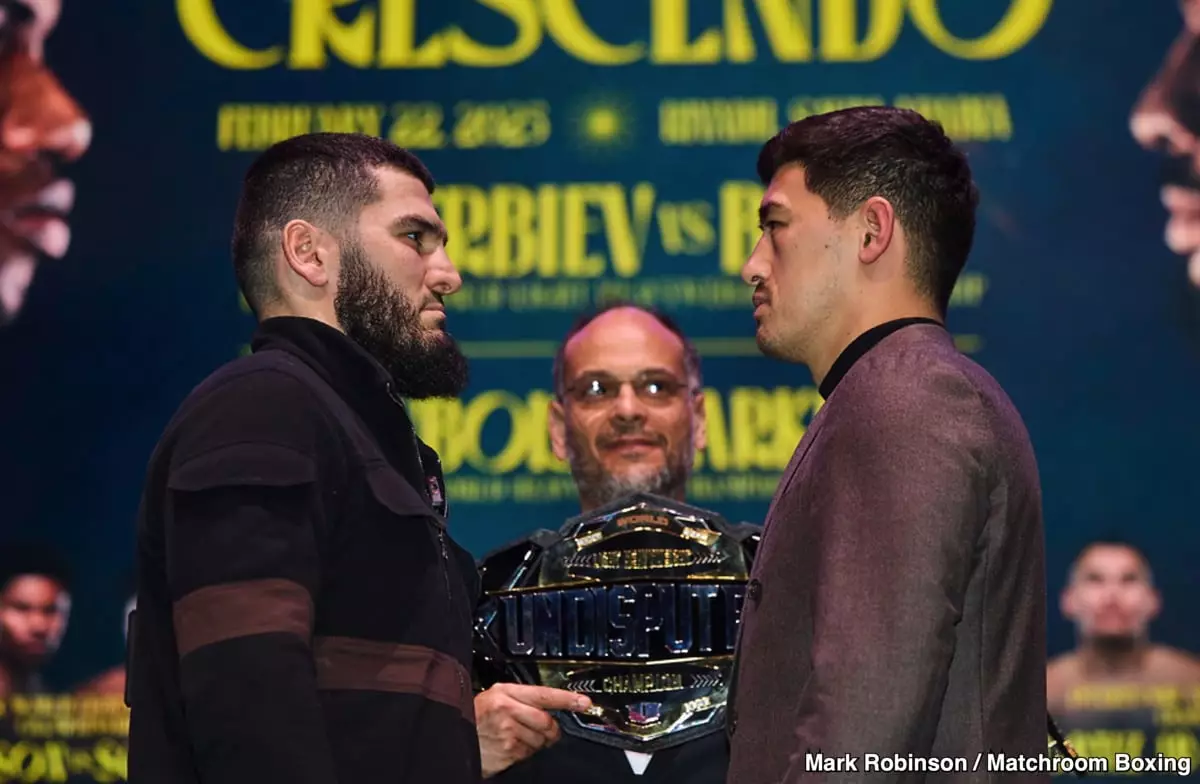Artur Beterbiev, at 40 years old, stands at a crossroads that many elite athletes encounter: the inevitable decline of physical prowess with advancing age. In a sport that demands explosive power, endurance, and rapid reflexes, aging is often a silent adversary. Despite boxing’s evolution allowing fighters longer careers, the decline in peak performance begins to manifest in their late 30s and early 40s. Beterbiev’s frustration highlights a universal truth—timing is everything, and the window to capitalize on prime form narrows with each passing year.
His persistence underscores how crucial it is for high-level fighters to strike while the iron is hot. The longer his third fight with Dmitry Bivol remains unconfirmed and delayed, the more it risks diminishing Beterbiev’s competitive edge. The question that hangs in the air is not only about the bout’s scheduling but also about the strategic calculus of age and opportunity. For fighters in their late 30s and beyond, each potential fight could be their last genuine shot at legacy, making delays not just frustrating but arguably detrimental.
The Politics of Fight Promotion and Geographical Venue Shifts
The decision to move the trilogy fight to Russia rather than Saudi Arabia reveals much about the behind-the-scenes machinations that influence boxing conflicts. Venue selection isn’t solely about logistics or audience reach; it involves complex negotiations, financial interests, and national pride. The move might favor Beterbiev’s home advantage, but it also hints at possible strategic moves to manipulate timing and negotiations.
Changing the fight’s location could be a subtle tactic to pressure Bivol or to buy more time for Beterbiev, whose prime performances are finite. It raises questions about whether the delay stems from promotional strategies, contractual issues, or personal disagreements about the best timing. These political maneuvers often overshadow the fighters’ readiness, risking the integrity of the sport’s unpredictability—all while possibly serving the interests of promoters or managers seeking maximum profit.
The Psychology of Waiting and Strategic Delay
Beterbiev’s public questioning of Bivol’s intentions exposes a vital psychological element in boxing: the fight as a chess match of mind and will. His rhetorical question—“how old do I have to be?”—casts Bivol’s delays as tactics that threaten his career’s historical importance. It highlights the desperation fighters feel when their window of opportunity starts to close, and their legacy hangs in the balance.
Fighting isn’t simply about raw talent; it’s a game of timing, patience, and perception. Beterbiev’s openness on social media reveals his frustration, yet also his awareness that delays serve as a form of psychological warfare. Fighters often confront the dilemma of waiting for the ‘perfect’ moment versus risking irrelevance or decline if they wait too long. Beterbiev’s concern underscores how heavyweight combat isn’t just physical but equally mental.
Legacy in the Balance: The Race Against Time
Ultimately, the long delay between fights fuels speculation and concern about aging warriors bordering on the cusp of decline. For Beterbiev, competing at the highest level now involves navigating the harsh realities of age, injury, and the relentless march of father time. The trilogy with Bivol is not merely about titles; it’s about cementing a lasting legacy, one that history will remember. But if delays continue to push the fight further into the future, that legacy risks being compromised.
Bivol, potentially assessing this risk, may be intentionally torturing the timeline to extend his own window of opportunity. This dynamic reveals a deeper truth about boxing: that often, the sport becomes a game of attrition—fighters trying to outlast their opponents or their own bodies, even as the ticking clock grows louder. The fight’s outcome hinges not only on skill and willpower but also on the cruel, unavoidable force of mortality that even the strongest fighters must face.
The saga of Beterbiev and Bivol is more than a rivalry; it’s a gripping illustration of how age, timing, politics, and psychology intertwine in the pursuit of greatness. The question remains—will they meet while both are still at their peak, or will the sands of time drown their chance forever?

